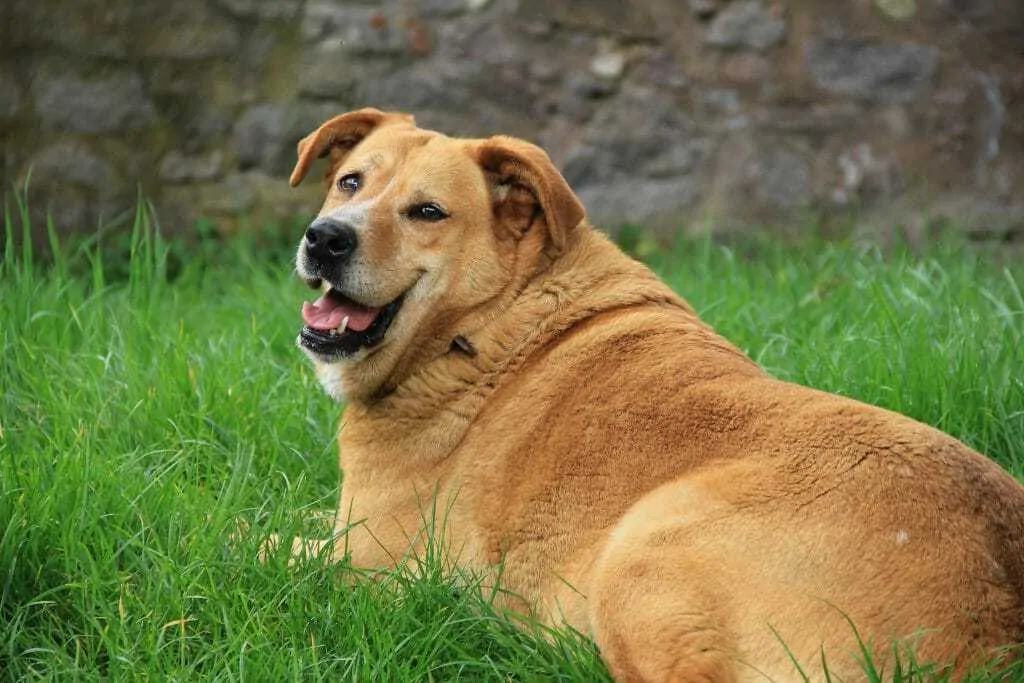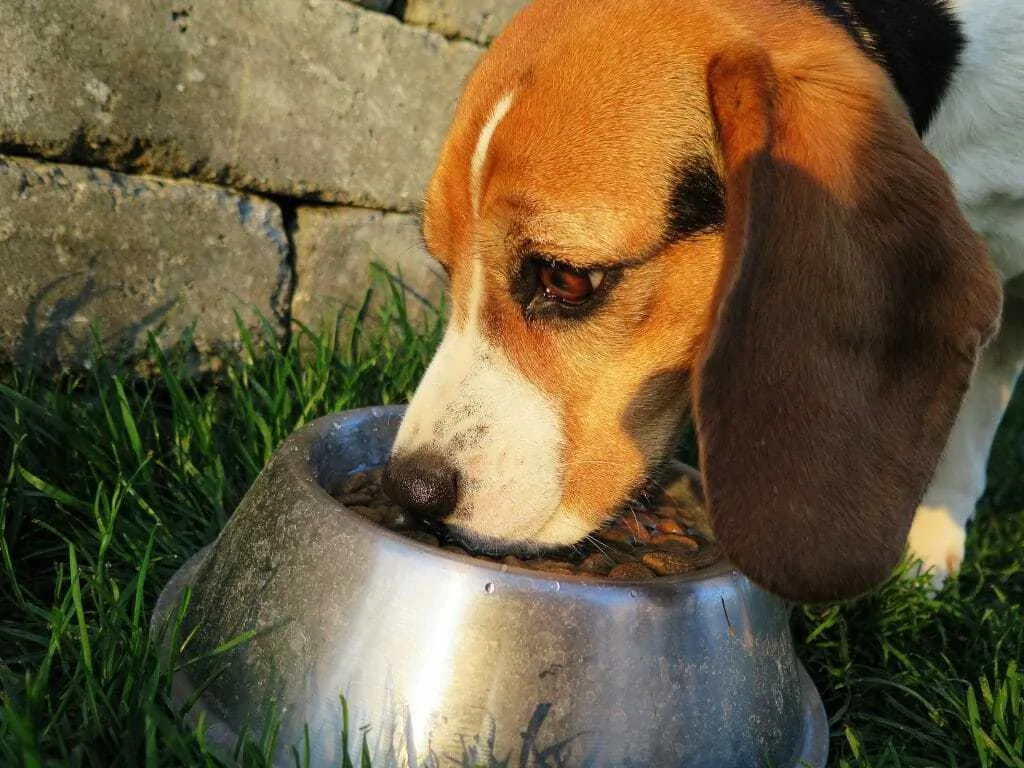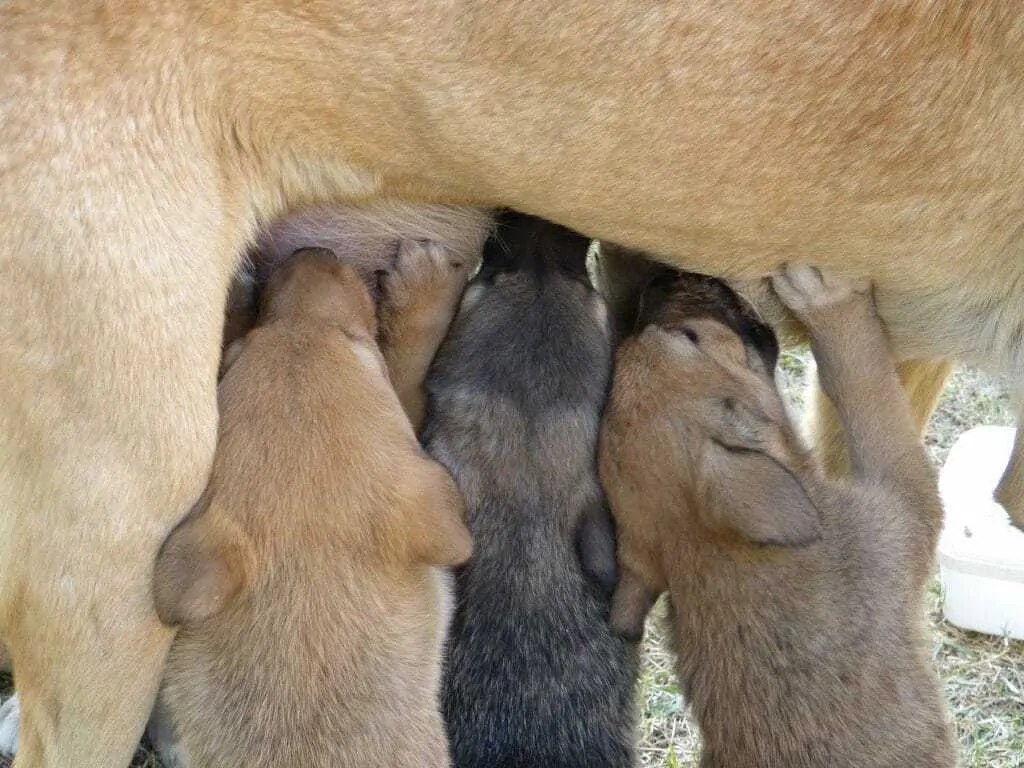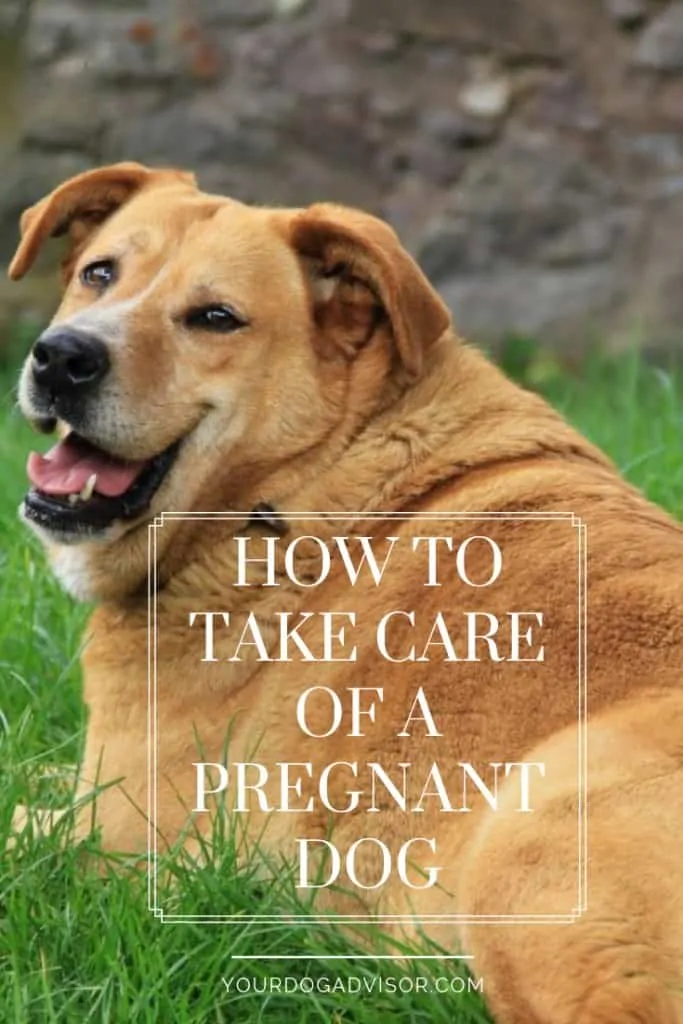So you’ve confirmed that your dog is pregnant and now your watch has begun! Sure, sometimes it can be confusing and stressful especially if it’s your first time dealing with a pregnant dog. However, taking care of an expectant dog isn’t much complicated as long as you know the basics. Just for the heads up; you need to double the dosage of the love and attention that you give her.
So how should you take care of a pregnant dog?
It’s very crucial that you know how to take care of a pregnant dog if you want her to deliver healthy puppies.
Contents
Visit the Veterinarian
Apart from verifying if your bitch is pregnant, the vet can run a couple of tests on your female dog to foresee any complications that may arise during the gestation period. For instance, if your bitch needs to be dewormed, the vet can prescribe the appropriate medication. Not to forget, if your bitch was on preventative heartworm treatment, you can still continue the medication but under the strict guidance of the veterinarian.
Nevertheless, vaccinations should be avoided during pregnancy. Instead, make sure your bitch is well-vaccinated before the breeding process.
The vet can run an ultrasound 4 weeks after the conception to confirm the pregnancy. Afterward, the vet should tell you how many unborn puppies to expect so that you can plan how to take care of them in advance. This is usually done a week before the due date through an X-ray to count the expected puppies in the womb.
However, if the vet must tell you when the bitch is due to whelp, it is likely an unplanned pregnancy.
If your dog is pregnant, you should schedule regular appointments with the vet to keep track of the progress. The vet will inform you when you can expect new family members.
Nutrition
Contrary to what most people think, you don’t need to feed your dog vitamins, minerals, and meat supplements during pregnancy; unless your dog has special needs and the vet has prescribed. Just stick to the regular high-quality dog food that has been approved by the AAFCO. The food amount or intake should stay the same for the first four weeks of her pregnancy.
Once the pregnancy reaches the third trimester, the puppies will develop faster and your dog will start to gain weight which is a burden since she will require more energy. For that reason, you should change her diet from regular to high-quality puppy food during week five. Also, you should gradually increase her food intake by 30 to 50 percent. However, don’t force your dog to eat everything at once but instead, divide the food into smaller portions or leave the food and water at her bowl so she could eat whenever she is hungry.
Make sure you feed your pregnant dog high quality food approved by the AAFCO. Later, you can increase the food amount by 30 or 50 percent during the 5th or 6th week.
Exercise
It is okay for your dog to work out to maintain her strength but don’t overdo it especially after the 4th week of her pregnancy. In fact, avoid any strenuous exercise or obedience training. The most preferred low-intensity exercise routine for a pregnant dog is short regular walks. Of course, don’t forget the leash so you won’t have any incidents when she meets other dog rivals outside.
Instead of letting your expectant dog perform exhausting workout routines, take her out for short walks especially early in the morning or late in the afternoon.
Get a Whelping Box
If you don’t provide your pregnant dog with a private nest where she can comfortably whelp, don’t be surprised when she tries to settle in your bed or couch. It can get messy after the delivery and you will need a lot of clean towels, sheets, and blankets that you won’t need to use again.
However, you can buy a whelping box which will serve as a safety nest during delivery. Make sure you buy the whelping box at least 2 or 3 weeks before the delivery date to give her time to adjust. The whelping box should be spacious and secure to accommodate the expected puppies. Additionally, the ideal temperature within the whelping box should be around 75 degrees Fahrenheit – you could position light dimmed lamp or low wattage light bulbs close to the whelping box to maintain the surrounding temperature.
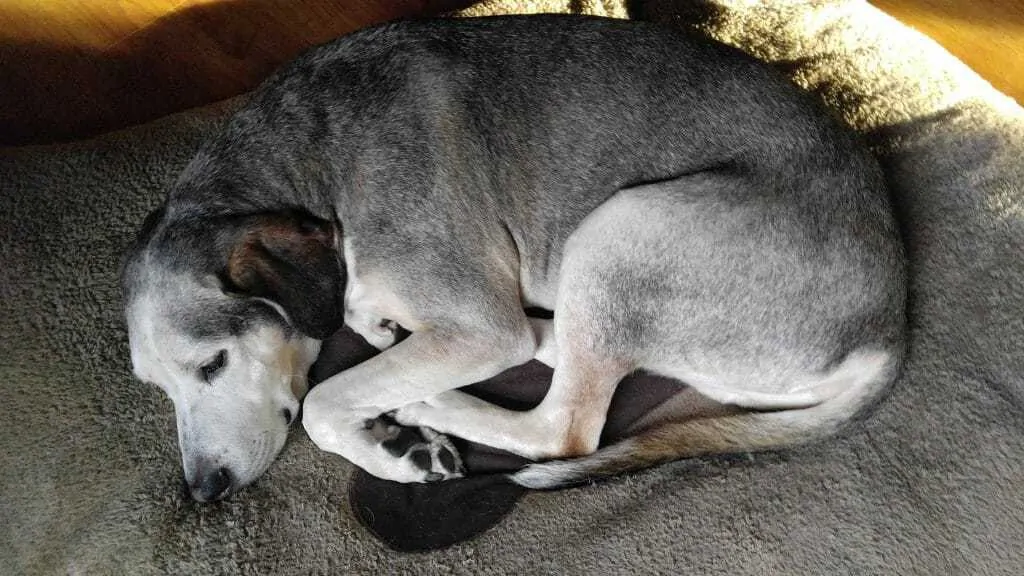
FAQs
Q. How Do I know My Dog is About to Whelp?
A: The typical gestation period for a dog is around 9 weeks (57 to 65 days). During the last phase of her pregnancy, your dog will become restless and lose appetite. The most effective way to know if she is about to give birth is to measure her temperature – a drop from 101 or 100 degrees Fahrenheit to 97 degrees Fahrenheit suggests that she is 24 or 48 hours away from delivery.
Q. How Can I Help My Dog To Give Birth?
A: When your dog goes into labor, you should notice a dark green vaginal discharge – an indication that the placenta has disconnected and the puppies are coming out. Take a deep breath and don’t panic; dogs have natural instincts to give birth without assistance. Needless to say, if the mother is unable to break the placental membrane or umbilical cord, you should help out.
Later, you can see to it that the puppies are kept dry and warm before scheduling a checkup with the veterinarian.
Q. What Are The Warning Signs of a Complication?
A: There are a few things that shouldn’t raise any alarm since they’re considered normal in an expectant mother. For example; weight increase, swollen teats, inconsistent appetite, morning sickness, restlessness, withdrawal behavior and vaginal discharge around one month after breeding.
Nonetheless, you should contact the vet immediately if you notice the following symptoms; seizures, shivering, trembling and signs of severe pain.
P.S. If you own any Brachycephalic breed particularly Boston Terrier, Pug, Shih Tzu, French Bulldog or Pekinese, it is very likely that you may need special medical assistance. Apparently, Brachycephalic breeds have the highest rate of pregnancy complications.
Q. What Things Should I Avoid During The Pregnancy?
A: If you’re really serious about taking care of your pregnant dog, avoid going on a vacation when she is about to give birth. You don’t want to leave your dog all alone wondering if you abandoned her, do you? Besides, most dogs like to be around familiar faces when they’re about to give birth.
Moreover, you should avoid doing anything that will make your pregnant dog irritated or uncomfortable. Want to replace her favorite furniture or bring in a new carpet? It is better to wait until she gives birth. Well, it may seem like a minor thing but unfamiliar sights, scent or sound can upset an expectant dog.
In fact, keep her in a secluded area. That means away from a dog park or other pets that could potentially hurt or expose her to infections.
Eventually, your dog should give birth after 9 weeks. Make sure that the nest is clean, warm and secluded to ensure the safety of the mother and the puppies.

Jen Jones is a professional dog trainer and behavior specialist with more than 25 years of experience. As the founder of ‘Your Dog Advisor’ and the ‘Canine Connection’ rehabilitation center, she applies a holistic, empathetic approach, aiming to address root causes rather than merely treating symptoms.
Well known for her intuitive and compassionate approach, Jen adopts scientifically-proven, reward-based methods, encouraging positive reinforcement over punishment. Jen specializes in obedience training, behavior modification, and puppy socialization. Her innovative methods, particularly in addressing anxiety and aggression issues, have been widely recognized. Jen has worked with many of the world’s leading dog behaviorists and in her free time volunteers with local animal shelters and rescue groups.
